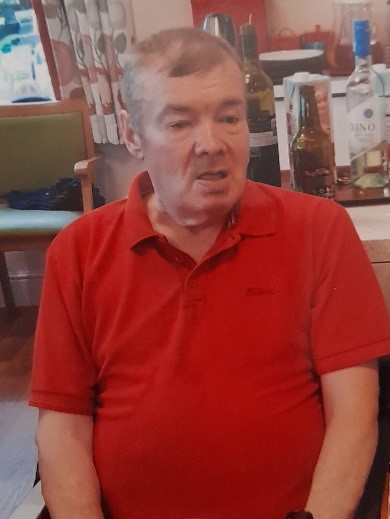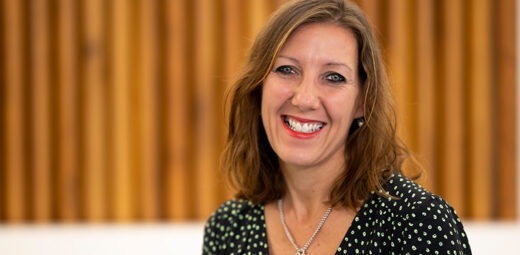
An inquest into the death of a 57-year-old man who fell from a care home window has ruled that this was an incident that could have been avoided.
Stephen Verrall (pictured) had been a resident at St John’s Nursing Home Limited in Hailing Park Road, South Croydon, Surrey since July 2014. Stephen had a history of learning difficulties and required assistance with all aspects of daily living. Stephen was under a Deprivation of Liberty Safeguards (DoLS).
Despite the DoLS, Stephen had been able to abscond from the home on two occasions on 30 September 2017 and 2 October 2017.
On 17 October 2017 Stephen was found in the car park outside the home, having had an unwitnessed fall from his first-floor bedroom window. Paramedics attended and Stephen was taken by ambulance to St. George’s Hospital where he later died on 19 October 2017, having suffered extensive injuries.
The Inquest follows a prosecution bought by the Care Quality Commission (CQC). St John’s Nursing Home pleaded guilty at Croydon Magistrates Court on 3 February 2021 to failing to provide safe care and treatment, resulting in avoidable harm to Stephen while he was resident at the home. The window from which he fell had an inadequate window restrictor. They were ordered to pay an £80,000 fine, £3,474 prosecution costs, plus a £170 victim surcharge.
The family however had additional concerns that they had not been able to visit in the days prior to his death due to an outbreak of vomiting and diarrhoea and also generally about the standard of care that was provided to Stephen including inadequate risk assessments and care plans addressing Stephen’s propensity to leave the home unattended and potentially an excessive use of Lorazepam.
Last Thursday, the Jury reached a narrative verdict, concluding ‘In the days leading up to the incident on 17th October 2017, Stephen’s routine had been severely disrupted due to the restrictions on visitation for his family during the outbreak of diarrhoea and vomiting. We believe this had a negative effect on his state of mind due to his closeness to his family and need for routine. The home did not consider Stephen’s personal needs in restricting visitation, especially considering he was not unwell; other solutions could have been found. Having previously expressed an intent to leave through a window and attempted to abscond from the home numerous times both successfully and unsuccessfully, there were inadequate personal risk assessments to monitor the risk. There was also no separate risk assessment in place regarding the maintenance of the windows. The chain window restrictor was inadequate and there was a failure to meet health and safety guidelines which the home had a responsibility to be aware of. We believe these factors contributed to Stephen’s death, from an incident which could have been prevented.’
The Coroner issued a Prevention of Future Deaths Report to both St John’s Nursing Home and CQC. Of particular concern was that CQC only undertook responsive checks on window restrictors and that the reception of St John’s Nursing Home was unmanned at the weekends, creating a risk that residents may follow visitors through the door.
Stephen’s parents, Alan and Irene Verrall instructed Solicitors at Hugh James to assist with the inquest and pursue a civil claim. Following settlement of the civil claim, Hugh James have continued to provide ongoing assistance with the Inquest. Fran Moore, an Associate at Hugh James, instructed Mass Ndow- Njie (Mass Ndow-Njie – Barrister – 7BR Barristers Chambers) to ask questions on behalf of the family.
Commenting on the verdict, Samantha Harlow, Stephen’s sister said:
“We are very pleased with the outcome of the inquest as it confirms Stephen’s death was avoidable. St John’s Nursing Home failed to comply with health and safety regulations and failed to carry out appropriate risk assessments. The inquest also highlighted their lack of knowledge regarding appropriately administering medication. They failed to provide a safe environment for my brother which resulted in his death.
Stephen suffered a sudden and traumatic death which should never have happened. With no knowledge of the legal system, it was important to have legal representation to try and find out why my brother died.
Hugh James Solicitors gave us the legal advice we needed and they have remained extremely helpful throughout this complex and difficult process.”
Fran Moore of the Hugh James Inquest team added:
“This has been a long and protracted process for Stephen’s family and whilst nothing can ever bring Stephen back, we are pleased that the failures of St John’s Nursing Home, whose duty it was to care for Stephen, have been recognised in both criminal proceedings and at the inquest. We hope that the findings of the coroner will prevent similar tragedies happening again.”




